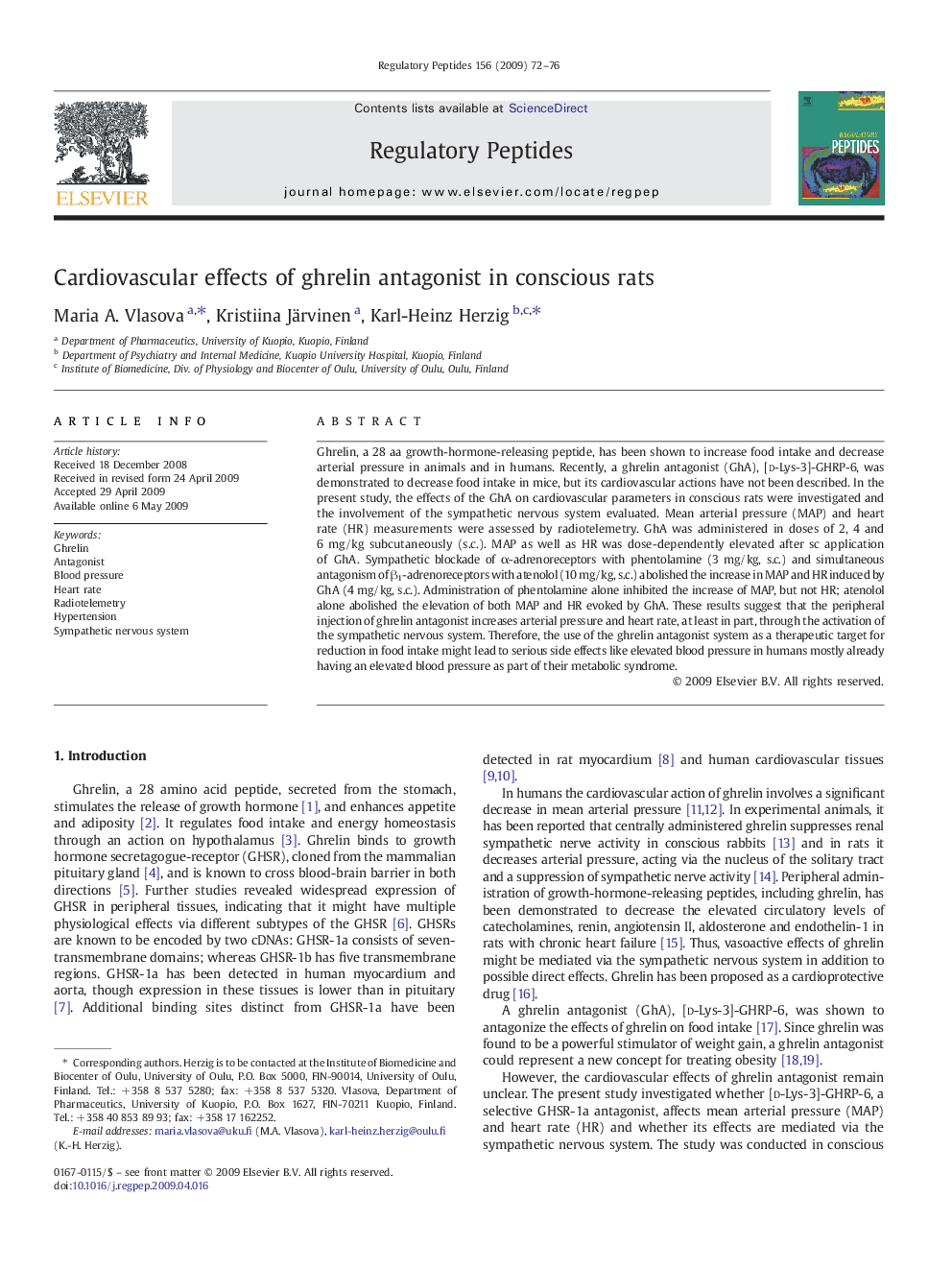| Article ID | Journal | Published Year | Pages | File Type |
|---|---|---|---|---|
| 2022928 | Regulatory Peptides | 2009 | 5 Pages |
Ghrelin, a 28 aa growth-hormone-releasing peptide, has been shown to increase food intake and decrease arterial pressure in animals and in humans. Recently, a ghrelin antagonist (GhA), [d-Lys-3]-GHRP-6, was demonstrated to decrease food intake in mice, but its cardiovascular actions have not been described. In the present study, the effects of the GhA on cardiovascular parameters in conscious rats were investigated and the involvement of the sympathetic nervous system evaluated. Mean arterial pressure (MAP) and heart rate (HR) measurements were assessed by radiotelemetry. GhA was administered in doses of 2, 4 and 6 mg/kg subcutaneously (s.c.). MAP as well as HR was dose-dependently elevated after sc application of GhA. Sympathetic blockade of α-adrenoreceptors with phentolamine (3 mg/kg, s.c.) and simultaneous antagonism of β1-adrenoreceptors with atenolol (10 mg/kg, s.c.) abolished the increase in MAP and HR induced by GhA (4 mg/kg, s.c.). Administration of phentolamine alone inhibited the increase of MAP, but not HR; atenolol alone abolished the elevation of both MAP and HR evoked by GhA. These results suggest that the peripheral injection of ghrelin antagonist increases arterial pressure and heart rate, at least in part, through the activation of the sympathetic nervous system. Therefore, the use of the ghrelin antagonist system as a therapeutic target for reduction in food intake might lead to serious side effects like elevated blood pressure in humans mostly already having an elevated blood pressure as part of their metabolic syndrome.
